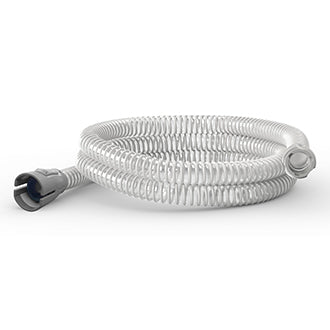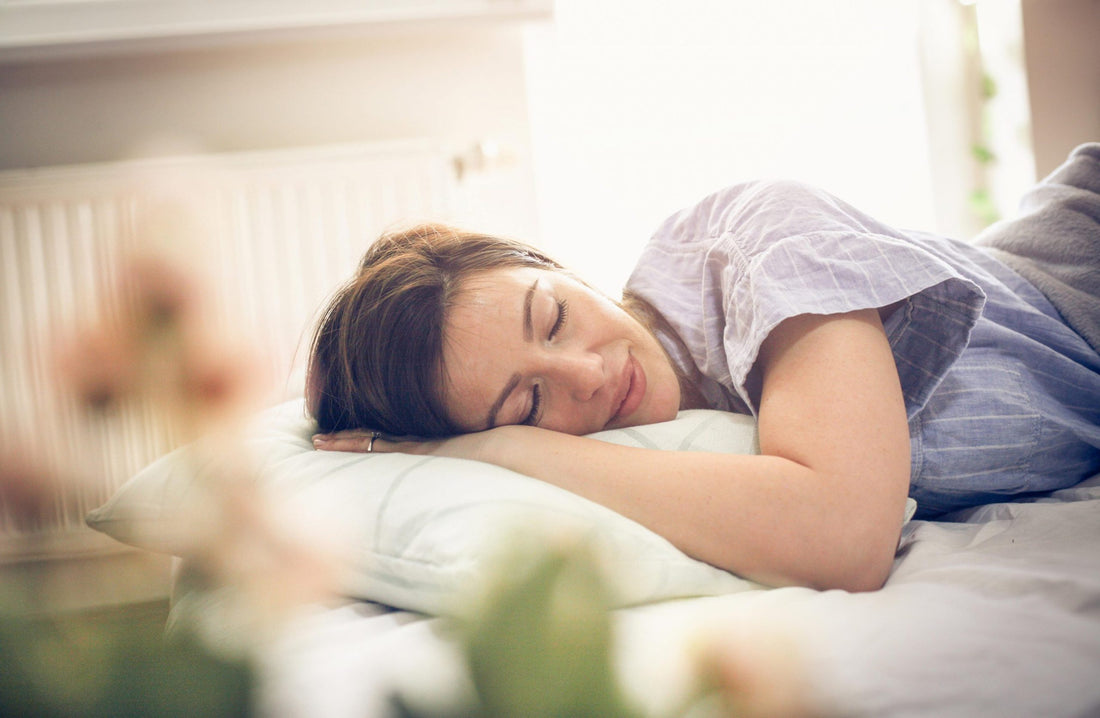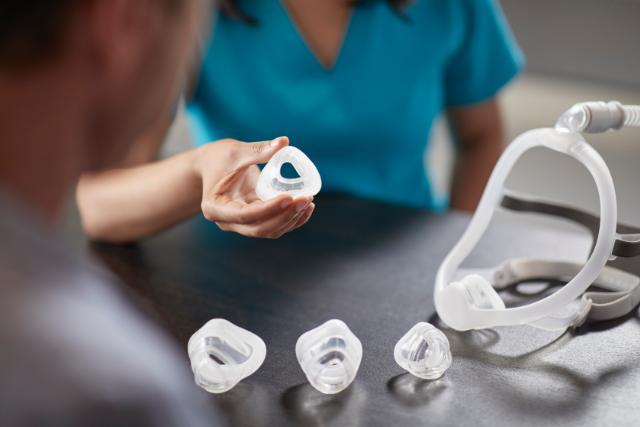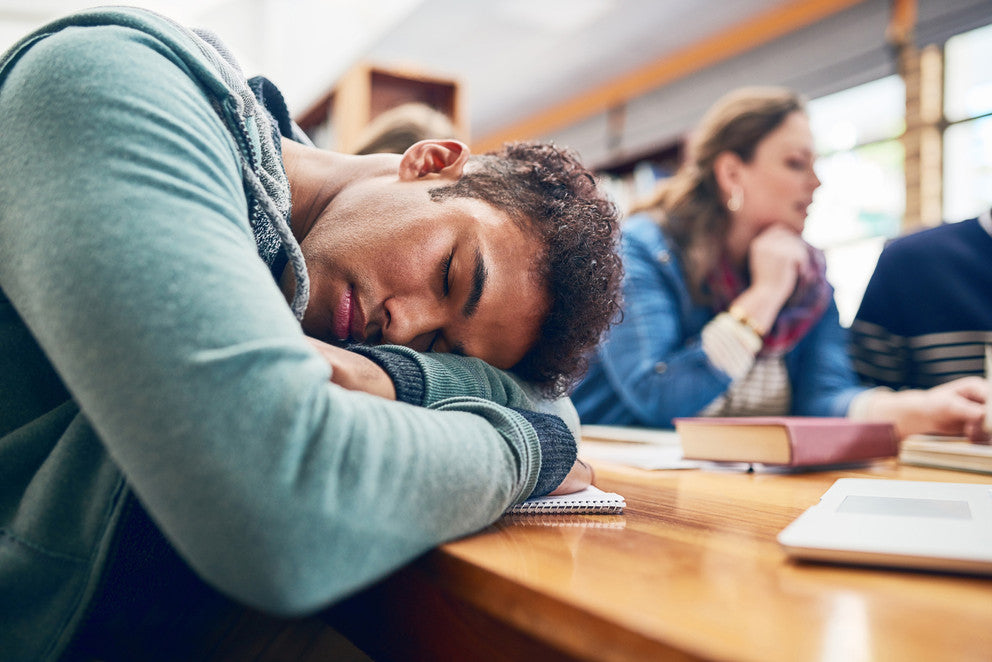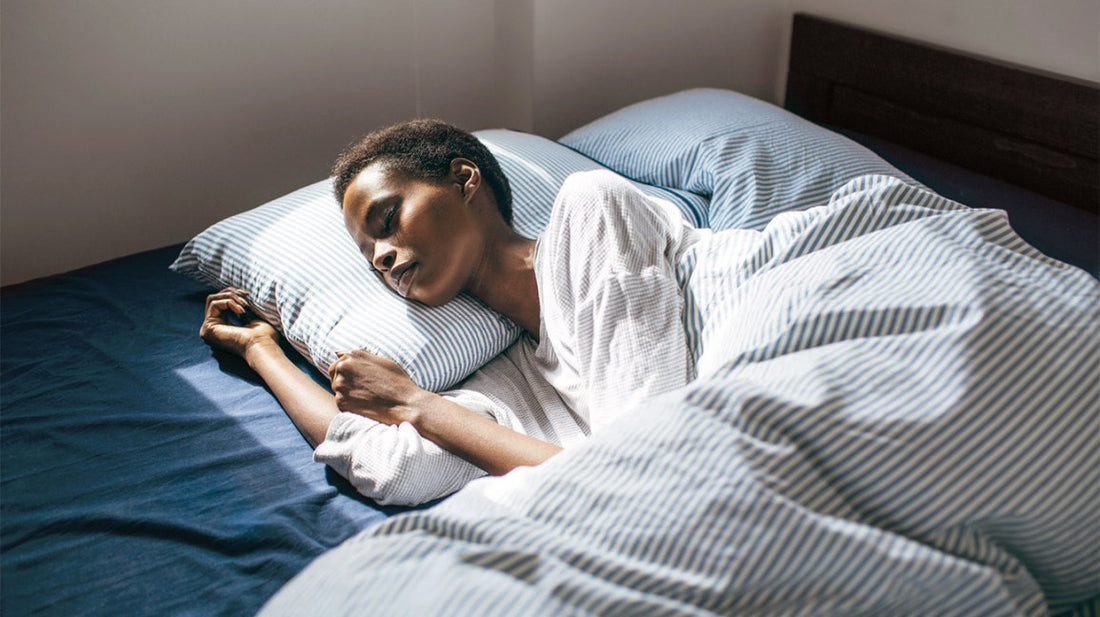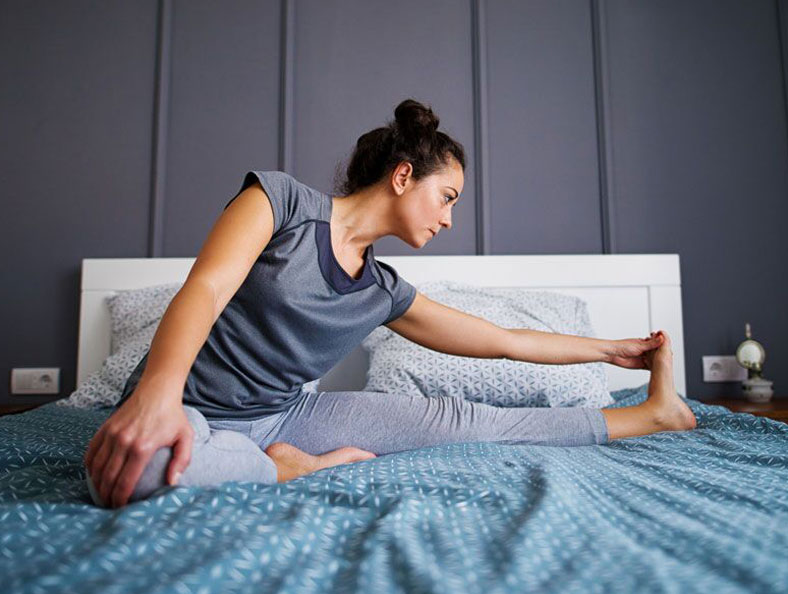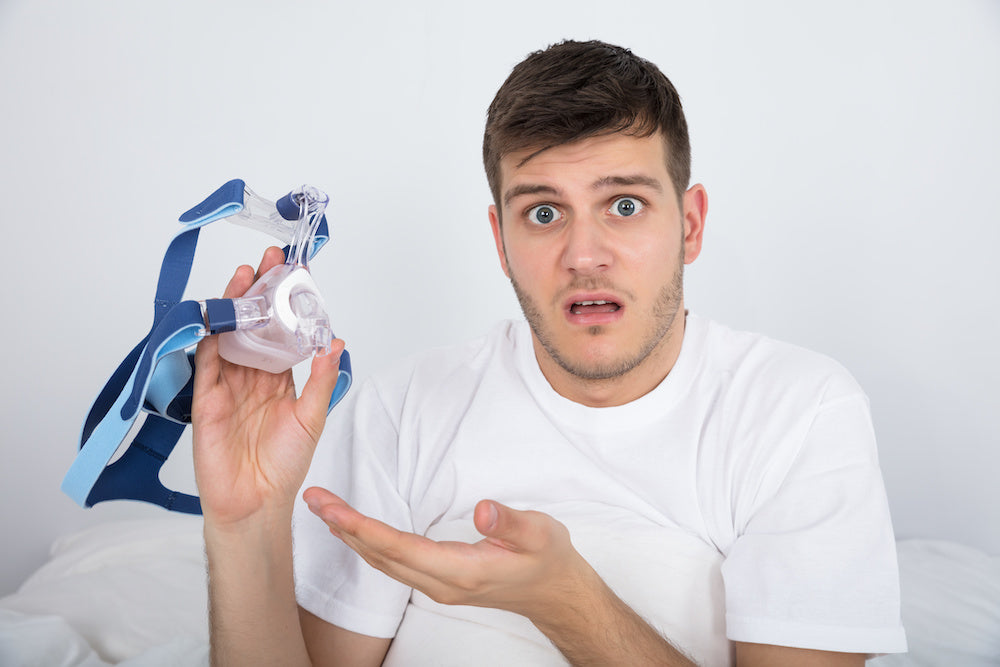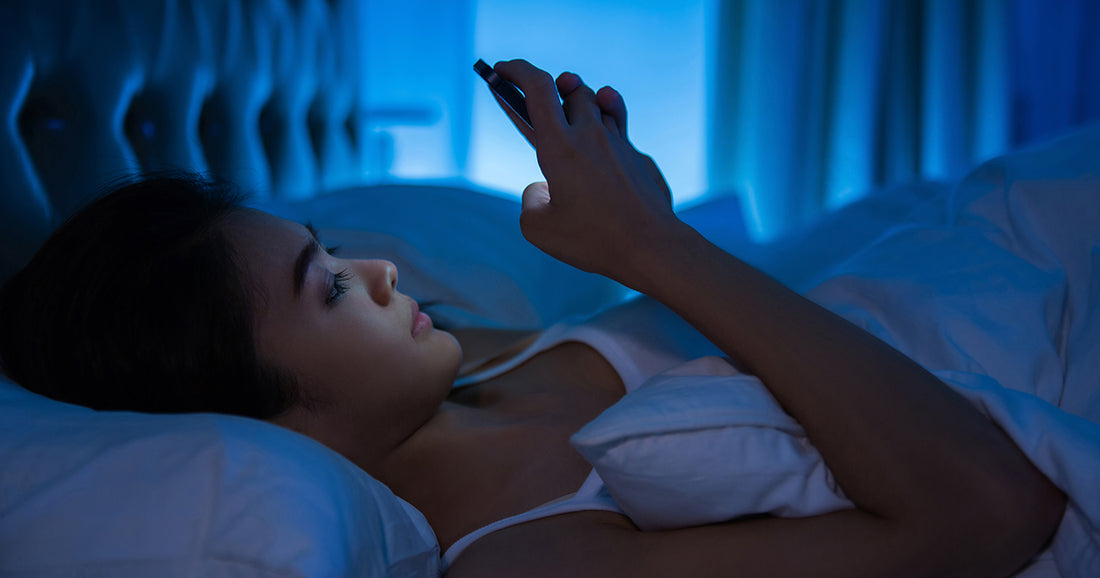News
Are Changes in the Weather Affecting your Sleep?
wp:paragraph Now that the weather outside is becoming cooler and the hot summer nights are behind us for another year, you may find that some of your sleep habits are a little different these days. This is completely normal. /wp:paragraph wp:paragraph Your body does a lot of work in regulating your 24-hour sleep-wake cycle and the temperature outside actually has more of an effect on your sleep than you may think. Regulating your body temperature while sleeping is incredibly important for a good sleep overall, but all of the changes in the weather can affect your internal clock and melatonin production more than you think. Here are a few ways that you may find your sleep is affected by the weather. /wp:paragraph wp:paragraph Cooler nights /wp:paragraph wp:paragraph Now that fall is officially here, so are the cooler nights. While experts recommend slightly cooler temperatures for sleeping in general, it is important to find a happy medium. You don’t want to find yourself so cold that you are shivering or uncomfortable. Don’t be afraid to put the heat on at night or put on an extra layer just to be comfortable while sleeping. /wp:paragraph wp:paragraph Shorter Days /wp:paragraph wp:paragraph Now that it gets darker earlier, you may find you are either feeling tired earlier, or you are having trouble sleeping. Seasonal Affective Disorder (SAD) is also common around this time thanks to the shorter hours of sunlight. Sticking to a regular bedtime and getting as much sunlight as you can during the daytime will help with this. Make sure you are also getting regular exercise in as well. /wp:paragraph wp:paragraph Changes in air pressure /wp:paragraph wp:paragraph If you are finding yourself waking up with mild headaches, body aches, or very minor cold-like symptoms, you are not alone. Whenever there is a change in barometric pressure (which is the change in the weight of the air that occurs whenever there are drastic weather changes) it can take your body some time to adjust. Fatigue is extremely common because of this, as are the symptoms mentioned above. Just know that this will pass, and make sure you practice good sleep hygiene to help with this. /wp:paragraph
about Are Changes in the Weather Affecting your Sleep?Does Insurance Cover Your CPAP Machine?
wp:paragraph If you suffer from sleep apnea and use CPAP therapy to help you sleep at night, then you will probably know that the machine and all of the necessary parts for it can be extremely costly. /wp:paragraph wp:paragraph Your sleep is vital to your overall well-being, therefore investing in it is worthwhile, however, your wallet may not be feeling the same way. Luckily, you may be able to get some or all of the costs of CPAP therapy covered by health insurance or government assistance programs, but it is important to do your research and double-check to see whether this is something that applies to you or not. /wp:paragraph wp:paragraph What kind of coverage could I get? /wp:paragraph wp:paragraph Most provinces in Canada have programs in place that can assist with some or all of the cost of a CPAP device. In Ontario for example, there is a program run by the Ministry of Health called the Assistive Devices Program (ADP) which typically covers 75% of the costs of the CPAP machine and parts. Other provinces may only cover certain CPAP parts while others offer no coverage at all. You may also be eligible for some funding at a national level, such as Veterans Affairs. /wp:paragraph wp:paragraph If you have your own health insurance, there are many policies that can cover some or all of the costs of a CPAP device. Be sure to read your policy carefully and/or contact your insurance agent to find out what is covered and what is not. /wp:paragraph wp:paragraph What is required? /wp:paragraph wp:paragraph For any government-funded coverage, you will require a valid health card in your name. Also, you must have a prescription or a doctor's note stating that you have been diagnosed with sleep apnea and require a CPAP device for treatment. /wp:paragraph wp:paragraph What if I need a part replaced? /wp:paragraph wp:paragraph CPAP parts do wear out after some time and will need to be replaced, but only within a specific timeframe. Make sure you read into how often you are allowed to replace your parts and still have it covered. /wp:paragraph wp:paragraph Hold on to ALL receipts from the purchases of any new CPAP parts, even if it’s covered. It will also help to write down the dates that the parts were purchased, that way you can keep track of how long you have had each part and when it is time for them to be replaced. Keeping your CPAP machine and parts clean on a regular basis will help to extend their lifespan as well! /wp:paragraph wp:paragraph Be sure to visit papsmart.com for your CPAP therapy needs. /wp:paragraph
about Does Insurance Cover Your CPAP Machine?Six Sleep Tips for Post-Secondary Students
wp:paragraph With the long summer days coming to an end, classes for college and university are just starting for the year and whether you are going back to on-campus learning or your classes are still virtual, it’s time to get your sleep routine in check. /wp:paragraph wp:paragraph It’s no secret that post-secondary students are not exactly known for having the best sleeping habits. Sleep is essential for everyone, but if you are a student in college or university, it is more important than ever to make sure you are well-rested during the daytime so you can concentrate on your studies and have a successful semester. /wp:paragraph wp:paragraph Here are a few tips for post-secondary students to get a good night’s sleep; /wp:paragraph wp:list {"ordered":true,"type":"1"} Keep your sleep schedule as consistent as possible: many class schedules in college and university can vary day to day, meaning you may have to deal with classes in the early mornings and/or late evenings. Try your best to go to bed and wake up at within 1-2 hours (even on weekends!) Practice good sleep hygiene: make sure your sleep environment is cool and dark, take advantage of blackout curtains and earplugs if necessary. Following a relaxing routine right before bed will also be important to help you prepare for a good night’s sleep. Don’t use your bed for anything other than sleeping: as tempting as it may be to take your laptop on the bed to finish that essay, don’t do this! Avoid caffeine before bedtime: a cup of coffee may seem tempting if you are doing homework into the evening hours but this will keep you awake at night. Keep alcohol, nicotine, and cannabis to a minimum: all of that late night partying is not great for your sleep cycle. Limit how much you drink in the evening hours and don’t use nicotine or cannabis too close to bedtime. Keep your naps short: if you absolutely need to nap during the daytime, one hour or less is recommended, that way it doesn’t interfere with your bedtime. /wp:list
about Six Sleep Tips for Post-Secondary StudentsHow the Pandemic May Have Affected Your Sleep
wp:paragraph It’s been almost a year and a half since the Covid-19 pandemic turned the world upside down. In that time, you may have noticed that your sleeping habits may be a lot different these days than they were 18 months ago which is the case for many people, whether they realize this or not. /wp:paragraph wp:paragraph If you find that your sleep habits have changed under the different circumstances, that is fine, as long as you are being smart about it. Here are just a few of the top ways people have changed their sleeping habits to align with the pandemic circumstances. /wp:paragraph wp:paragraph Different Bedtimes /wp:paragraph wp:paragraph You may have found yourself going to bed later than you normally would, and possibly even sleeping in more often. If you are no longer commuting to work and finding yourself at home more often then, this is fine. There is nothing wrong with adjusting your sleep schedule under a change in circumstances, but make sure you are still relatively consistent with the time you go to bed and wake up. /wp:paragraph wp:paragraph Using Sleep Supplements /wp:paragraph wp:paragraph More and more people are relying on over-the-counter sleep supplements, like melatonin, to help them fall asleep. While taking melatonin once in a while is generally okay, it is best not to make this a long-term daily occurrence. It is important to speak to your doctor and get help if you are struggling with falling and staying asleep. /wp:paragraph wp:paragraph Dreams and Nightmares /wp:paragraph wp:paragraph The stress and uncertainty of the pandemic have been causing people to have more vivid dreams and nightmares than they might have had before. Of course, bad dreams happen to everyone now and then, but if this becoming a regular occurrence and negatively affecting your ability to get a good night’s sleep, then it’s time to get help. /wp:paragraph wp:paragraph Increased Screen Time /wp:paragraph wp:paragraph Scrolling your device to find out the latest pandemic news or communicating with loved ones during the lockdowns means more time in front of a screen these days, but don’t overdo it. Too much screen time can negatively affect your sleep habits and overall physical and mental health. It is important to find activities to do that don’t involve screens. /wp:paragraph
about How the Pandemic May Have Affected Your SleepRelaxation Techniques for Sleeping
wp:paragraph Did you know that stress and anxiety are the cause of many sleep issues? Life happens to all of us and even the best sleepers may go through periods where they have trouble sleeping. The body’s response to stress is not necessarily one that benefits your sleep cycle and can lead to other sleep issues such as insomnia. /wp:paragraph wp:paragraph Luckily there are a few simple techniques that can be implemented to help you relax before bedtime. You don’t need to be a meditation or yoga expert to take advantage of these and you certainly don’t need to do it perfectly the first time. /wp:paragraph wp:paragraph Breathing Exercises /wp:paragraph wp:paragraph Practicing a few slow deep breaths can be very beneficial in helping you to relax. Find a quiet place, close your eyes and breathe in and out slowly for about five minutes. Place a hand on your stomach, just under your lungs, and feel your diaphragm expanding as you breathe. /wp:paragraph wp:paragraph Body Scan & Muscle Relaxation /wp:paragraph wp:paragraph These are both very common meditative practices that can be used by anyone if you wish to let go of any tension in parts of your body. A body scan takes you through all parts of your body from head to toe, guiding you through visualization exercises to relax each part of the body through deep breathing. Progressive muscle relaxation is where you tense up your muscles in a specific group for a few seconds, then release, continuing to breathe slowly and deeply the entire time. This can be a new concept for many people but there are lots of videos on Youtube and apps like Calm and Headspace to help guide you through these exercises. /wp:paragraph wp:paragraph Stretching exercises /wp:paragraph wp:paragraph If parts of your body are feeling tense, it can be a good idea to stretch it out! This can be fantastic if you are feeling the physical effects of stress and anxiety, or if you have done a lot of physical activity and your body may be feeling sore. There are lots of fitness apps and Youtube videos with some good nighttime stretch routines to help you relax. /wp:paragraph wp:paragraph Practicing good sleep habits /wp:paragraph wp:paragraph As always, make sure you are practicing good bedtime habits to make the most out of your sleep. Make yourself a cup of herbal tea, turn off your phone, and read a good book as you are going to sleep to help you get into a state of relaxation. /wp:paragraph
about Relaxation Techniques for SleepingSix Common CPAP Problems and How to Fix Them
wp:paragraph Your CPAP machine can be a fantastic tool for helping with your sleep apnea. But like any other technological device, it is not perfect and can have its common problems and frustrations. It is important to remember that you are not dealing with this alone. Many of these issues are very common amongst CPAP users and can be easily fixed. /wp:paragraph wp:paragraph Check out some common CPAP user problems below, along with tips on how to fix these. /wp:paragraph wp:list {"ordered":true,"type":"1"} The mask makes me feel claustrophobic /wp:list wp:paragraph This is very common, especially for new CPAP users! Try to put the mask on your face during the day for a short period of time to get used to it, or think about switching to a nasal mask instead, if using a full face mask. /wp:paragraph wp:list The forced air pressure makes me feel uncomfortable /wp:list wp:paragraph This can certainly feel overwhelming for many people. If you are new to using a CPAP machine, start with a lower air setting if possible. You can also look into machines that automatically adjust the air pressure as you sleep. /wp:paragraph wp:list The machine is too noisy /wp:list wp:paragraph Luckily, most newer models of CPAP machines are silent, but make sure the air filters and tubing are all clean and unblocked as this can create unnecessary noise. Earplugs and white noise machines can help too if the noise is still bothersome. /wp:paragraph wp:list My nose feels very dry and stuffy /wp:list wp:paragraph A heated humidifier should help with this but make sure the mask is properly sealed on your face and there are no leaks. You can also try using a nasal saline spray before bedtime to help with this. /wp:paragraph wp:list My mouth is dry /wp:list wp:paragraph This is a very common problem for patients who breathe through their mouths. A humidifier should help with this or try using a chin strap to reduce any air leakage. /wp:paragraph wp:list My skin feels irritated /wp:list wp:paragraph If you are developing any skin irritation or sores, your mask may not be fitting properly, or it’s worn out and needs to be replaced. Try adjusting the straps and padding for a better fit and be sure to keep your mask clean regularly. /wp:paragraph wp:paragraph If you are still having issues that cannot be resolved on your own, speak to your doctor for advice. Be sure to check out www.papsmart.com for lots of choices for masks and other parts for your CPAP machine. /wp:paragraph
about Six Common CPAP Problems and How to Fix ThemThe Effects of Technology on your Sleep
wp:paragraph Ever fallen asleep while texting or checking social media on your phone? Or maybe you are notorious for checking your email well into the night. Given how addictive our phones and other electronic can be, this is certainly something that has happened to many of us, it’s just too easy! /wp:paragraph wp:paragraph As tempting as it may be, this type of activity is very strongly discouraged by many sleep experts for many reasons. /wp:paragraph wp:paragraph Why can’t I seem to put the phone away at bedtime? /wp:paragraph wp:paragraph That bright light on many smartphones and tablets (also known as a blue light) on most devices can be known to increase your alertness and overstimulate you, making it very difficult to fall asleep. Blue light can also block the release of a sleep hormone called melatonin, which is what signals your brain that it’s time to go to sleep. /wp:paragraph wp:paragraph Also, ever go down the “rabbit hole” of playing on your phone? Yes, many people are likely to become too wrapped up in whatever they are doing with their devices, whether it be playing a game, watching a video, answering work emails or simply scrolling on social media, keeping them up way past their bedtime. /wp:paragraph wp:paragraph How to break the scrolling habit /wp:paragraph wp:paragraph It is generally recommended that any use of electronic devices is stopped at least 2 hours before bedtime. However, in a world where we are so reliant on technology for many aspects of our lives, this may not always be possible. Here are a few other tips to not let technology affect your sleep. /wp:paragraph wp:list Try putting your phone or tablet in another room overnight, thus resisting the temptation to pick it up. If you absolutely need your phone with you in the same room, turn it to silent before going to sleep, to avoid any incoming notifications waking you up (even the vibrate mode can be very loud and distracting). Try getting into the habit of reading before bedtime. Even using an e-reader is fine as they typically do not emit the blue light that can negatively affect your sleep. If you have a TV in your room, be mindful of how much “binge watching” you do before bedtime and don’t fall asleep with the TV on. /wp:list
about The Effects of Technology on your Sleep